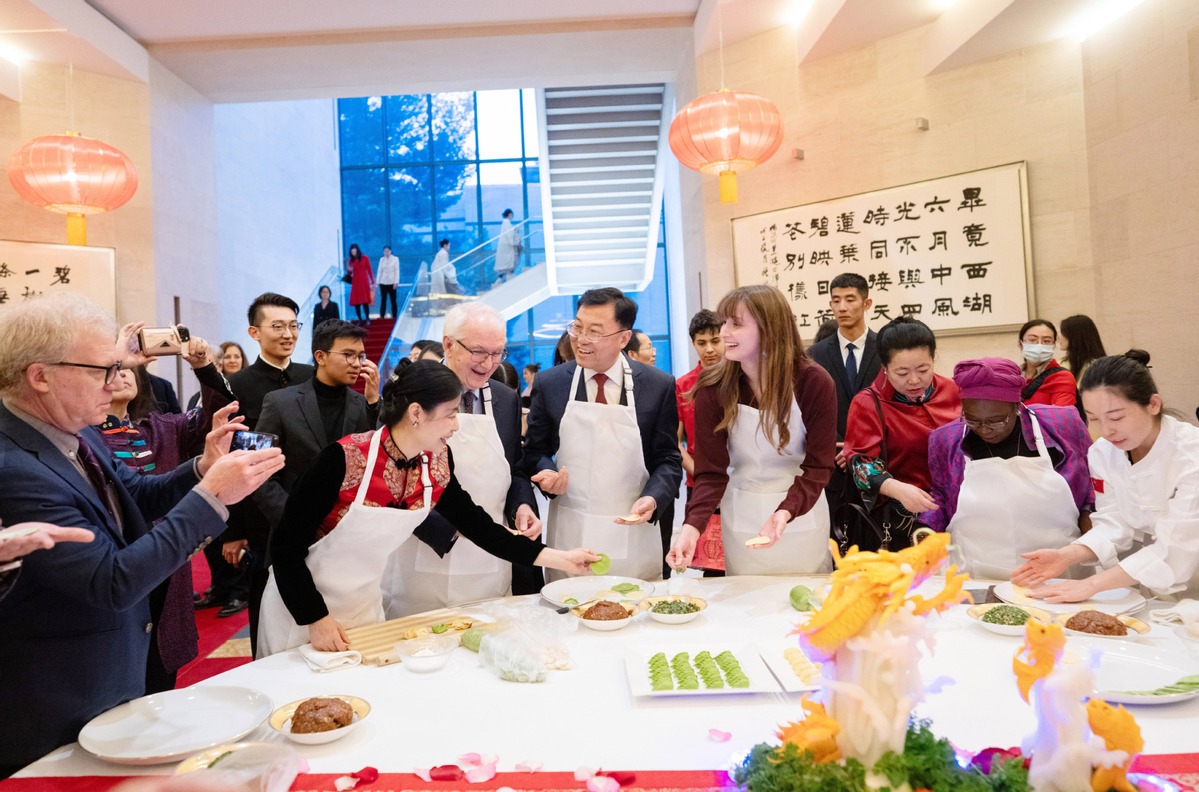Chinese ambassador to US calls for end of obstacles to educational exchanges
Xinhua | Updated: 2024-02-01 00:28

WASHINGTON -- Chinese Ambassador to the United States Xie Feng has recently called for clearing obstacles to educational exchanges, voicing opposition to US actions to deny the entry of certain Chinese students.
"The dynamism of thought springs from mutual learning, and scientific progress would be impossible without exchanges," Xie made the remarks at an event celebrating the 45th anniversary of China-US student exchanges and the Spring Festival Gala for Chinese and American youths, held at the Chinese Embassy in Washington DC Sunday night.
Noting that dozens of Chinese arriving in the United States, including students, were denied entry every month for the past few months, Xie said: "They held valid visas, had no criminal records, and were returning to school after traveling elsewhere or reuniting with their family in China. But when they landed at the airport, what awaited them was (an) 8-hour-long interrogation by officers, who prohibited them from contacting their parents, made groundless accusations against them, and even forcibly repatriated them and banned their entry."
"This is absolutely unacceptable. The Chinese side immediately expressed its firm opposition to the US side," the Chinese ambassador said.
Looking back at the development and achievements of China-US student exchanges in the past, Xie said: "Over the past 45 years, educational cooperation has always been a vivid example of our two peoples reaching out to each other, and one of the most productive areas of people-to-people exchanges. It has also laid a solid foundation for the stable development of the overall bilateral relationship."
"Although it has come under headwinds in recent years, the aspiration of both peoples for mutual understanding and learning remains unstoppable, and those supporting China-US educational cooperation have never been absent," Xie said.
Echoing his remarks, Allan Goodman, the CEO of the Institute of International Education, said it's in "everybody's interest" that U.S. students and Chinese students understand each other's countries and societies.
"We need Americans to understand China, to live in China, to study Mandarin. It has been a tradition of our academic institutions to encourage them," he said.
Goodman told Xinhua that he is "very optimistic" about the youth exchanges in the future. "I think young people are curious about each other. They're the best ambassadors for each other's countries. And I expect over the years ahead, the numbers on our side will continue to grow, and we continue to want to welcome our students here."
Bob Holden, chairman and president of the United States Heartland China Association, said that youth exchanges between the two countries are "extremely important."
"A lot of the things that we're doing is try to build that bridge of opportunity" for young people, he told Xinhua.
"It's not a win-lose situation," Holden said. "It's a win-win situation for everyone."
























